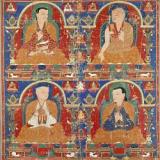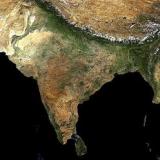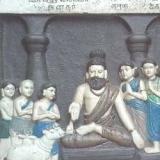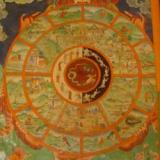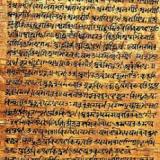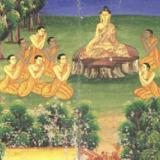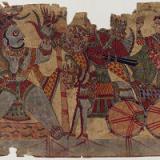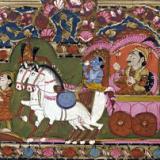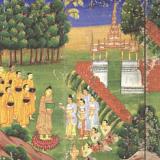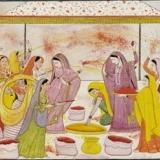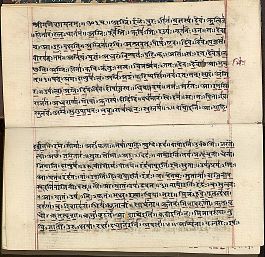Origins
In this opening series of episodes on philosophy in India, Peter Adamson and Jonardon Ganeri first provide an orientation concerning the nature of philosophy in India and the historical context in which it emerged. They go on to discuss the Vedic literature, focusing especially on the Upanisads with their proposal of the unity of self and world, and the notion of karma. These ideas, and the knowledge claims of the brahmins who feature in the Upanisads, were criticized by the emerging traditions of Buddhism and Jainism. In addition to charting this conflict, these podcasts deal with philosophical ideas in ancient Indian literature, especially the epic Mahabharata. Also featured are interviews with guests Brian Black, Rupert Gethin, and Jessica Frazier.
F. Edgerton, The Beginnings of Indian Philosophy: Selections from the Rg Veda, Atharva Veda, Upanisads, and Mahabharata(London: 1965).
R. Gethin, The Foundations of Buddhism (Oxford: 1998).
K.N. Jayatilleke, Early Buddhist Theory of Knowledge (London: 1963).
B.K. Matilal, Epics and Ethics (Oxford: 2002).
W.D. O’Flaherty (ed.), Karma and Rebirth in Classical Indian Traditions (Berkeley: 1980).
W.D. O’Flaherty (ed.), The Rig Veda: an Anthology (Harmondworth: 1981).
P. Olivelle (trans.), Upanisads (Oxford: 1996).
R. Thapar, The Penguin History of Early India from the Origins to AD 1300 (London: 2002).
R.S. Sharma, India’s Ancient Past (Oxford: 2006).
Posted on
In this introduction to the series, Peter Adamson and Jonardon Ganeri propose that Indian philosophy was primarily a way of life and search for the highest good.
Posted on
A whirlwind tour of philosophical literature in India.
Posted on
The Vedic period sets the historical context of the Upaniṣads, Buddhism and Jainism.
Posted on
The ancient texts known as the Upaniṣads claim to expose the hidden connections between things, including the self and the world.
Posted on
The god Indra seeks to learn the nature of his own self from another god, Prajāpati, and receives an answer worth waiting for.
Posted on
The origins of the idea of karma, its moral significance in the Upanisads, and an alternative conception in the Bhagavad-Gita.
Posted on
An interview with Brian Black about the philosophical and social aspects of the Upaniṣads.
Posted on
The pioneering Sanskrit grammar of Pāṇini and its implications for philosophy of language.
Posted on
The Four Noble Truths of the Buddha, and the function they are supposed to play in our lives.
Posted on
The Buddha offers two parables to explain the purpose of his philosophical teaching.
Posted on
Two figures from the Mauryan dynasty, Kauṭilya and the king Aśoka, set out contrasting ideas about the ideal political rule.
Posted on
Peter speaks to Rupert Gethin about the no-self theory, and its implications for Buddhist ethics and meditation practices.
Posted on
The great Hindu epic Mahābhārata explores moral dilemmas and the permissibilty of lying, against the background of the ethical concept of dharma.
Posted on
The Bhagavad-Gītā or “Song of the Lord” from the Mahābhārata ties its theory of detached action to an innovative conception of the divine.
Posted on
Vegetarianism and non-violence (ahimsa) in ancient Jainism, Buddhism, and Hinduism.
Posted on
Women philosophers and ideas about women in Buddhism, the Upanisads, and the Mahabharata.
Posted on
An interview with Jessica Frazier about philosophical ideas and arguments in the Vedas, Upanisads and later Hindu texts.




